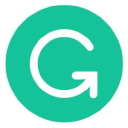How Two Friends Created One of the Largest Remote Working Communities
Hello! Who are you and what business did you start?
Hey everyone! My name is Steven Lin and I’m the Co-Founder of letsworkremotely. My Co-Founder, Ciaran Redmond, actually lives in Denver and we have never met in person. Funny enough, we actually started as competitors right about a year and a half ago, but now we’re on our way to create the best (and currently largest) remote community possible.
Our flagship product is actually the collection of 4 remote job/digital nomad Facebook Groups that either me, Ciaran, or both of us are admins or moderators of. The smallest one has around 25,000 members and the largest one is nearing 100,000.
While there is definitely some crossover of members in the groups, they’re all super engaging (>60% active members) and growing at about 100 people a week, sometimes a day. Some of the group discussions are remote work or digital nomad relate, but most of them are remote job posts to help our members live the work/life they desire.
The main focus the past year and a half have been fostering and growing our awesome remote community. We’ve also been trying to differentiate our value proposition from the dozens of other remote job board sites out there....




































